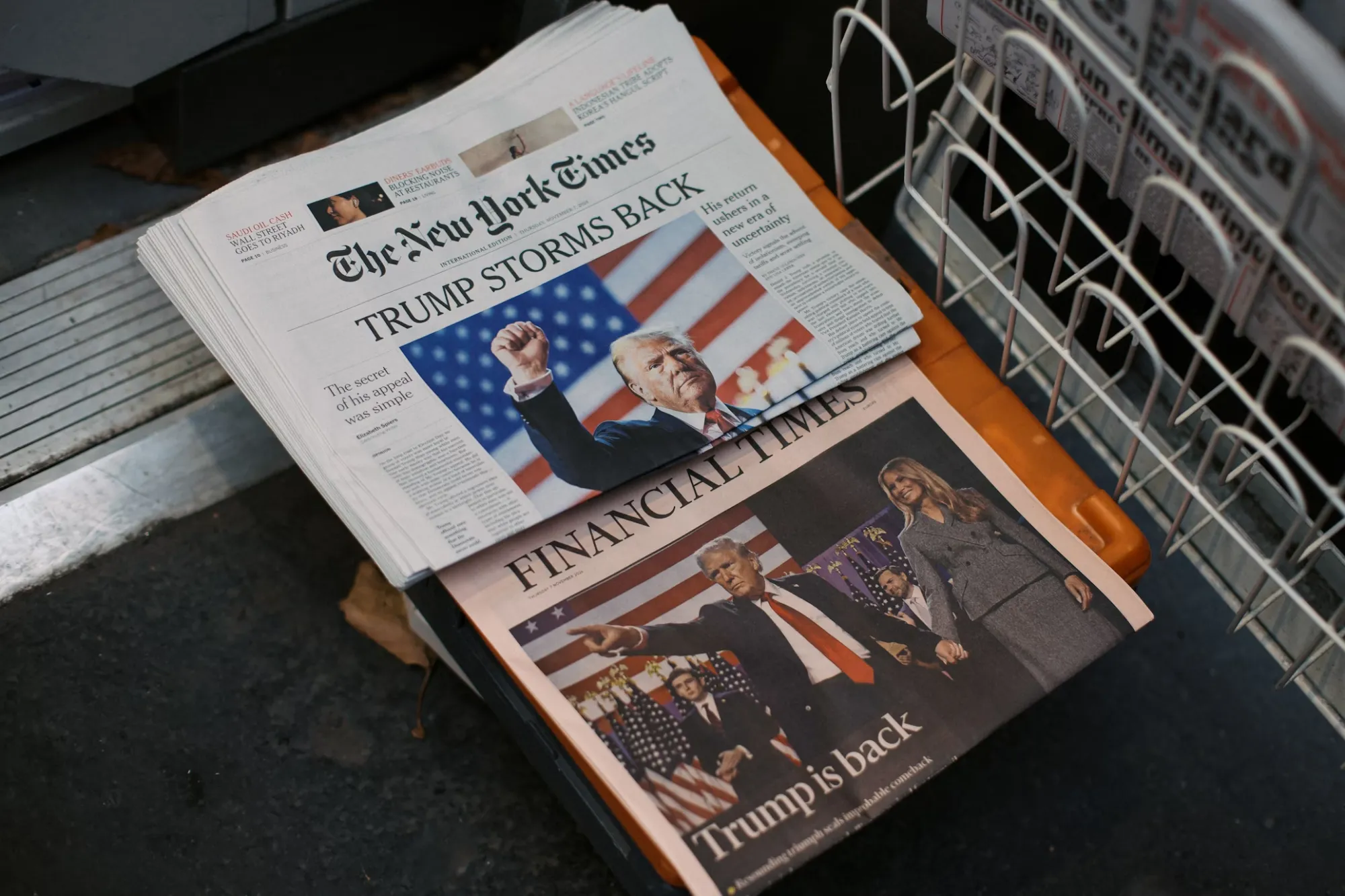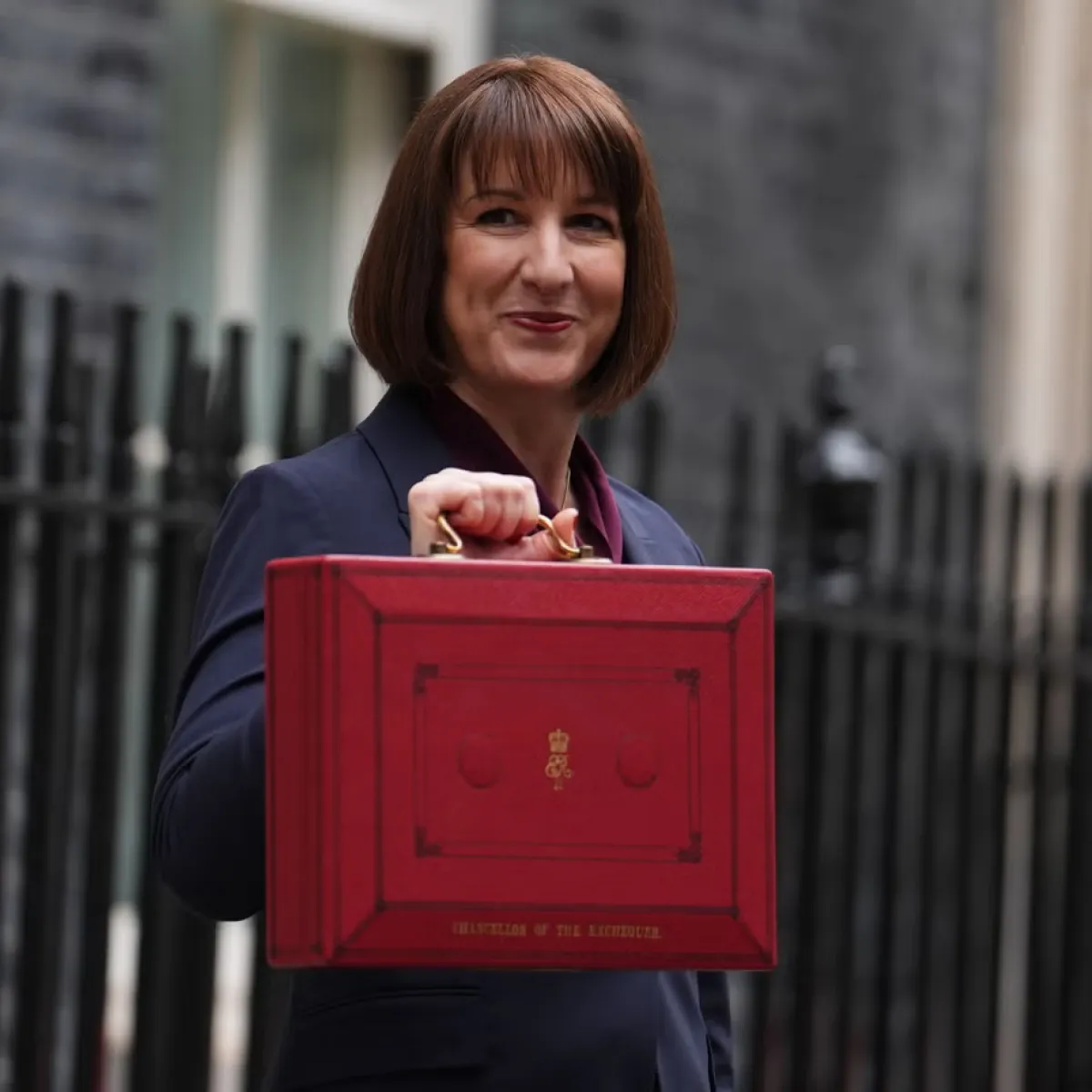This website uses cookies. Learn more
What might happen to the economy when Trump takes the wheel again?
First published in Political Capital - our weekly public affairs and polling news drop.

Brendan Terry, Associate Vice President at Lansons in New York, unpacks what Donald Trump’s recent victory might mean for the US economy, and how investors and international markets could yet react.

A historic election and market response
Following a much-anticipated head-to-head matchup this fall, it became clear that one of the biggest brands originated in New York will no longer be on Americans’ televisions every day.
Of course, I’m talking about the New York Yankees following their recent World Series loss to the Los Angeles Dodgers.
Unlike his favorite baseball team though, President-Elect Trump was able to defeat his California rival, becoming the first President since Grover Cleveland to win the White House, lose the White House, then win back the White House.
Regardless of their personal political leanings, investors typically prefer a degree of certainty to allow them to effectively analyze how the political landscape will impact markets.
Trump winning the Presidency, coupled with Republicans winning back the Senate and gaining seats in the House of Representatives, does provide the financial community with those higher degrees of certainty. With that confidence, equity markets were quick to rise, with the Dow jumping 3.6% the Wednesday following the election; its biggest post-election rally since rising 4.5% in 1896, when the US had only 45 states.
Trump’s economic agenda - tax cuts and regulatory easing
It is expected that equities will continue to see strong performance in the run up to the second Trump administration. Trump’s promises of business tax cuts, and projected adjacent growth of US corporate profitability, should help generate stronger earnings and extend equities performance.
The proposed easing of regulatory requirements, as well as likely leadership changes at the SEC upon Chair Gensler’s planned resignation prior to inauguration day, aims to be beneficial for small caps and boost M&A, particularly across the banking and oil & gas sectors.
That sentiment has already created early gains in the Russell 2000 Index and the crypto market, which has seen Bitcoin prices surge nearly 30% since the Election two weeks ago.
In the couple of weeks post-election, bond yields have yet to tick notably higher, despite the initial jump of the 10-year treasury yield in the days immediately following the election. While the potential forthcoming tax cuts are improving the outlook for equities and corporations, any resulting losses in federal tax revenue threatens to additionally balloon the deficit and reverse inflation’s current downward trajectory, causing concerns for bond markets.
Do spending cuts work?
One can only wonder how government spending will balance out those tax cuts, with Elon Musk tasked with creating the Department of Government Efficiency, where he’ll collaborate with Vivek Ramaswamy to fulfil a promise of cutting $2 trillion of government spending.
While both men have hinted at potentially eliminating certain federal departments altogether, given the extent to which the federal budget is tied up across defense spending, veterans’ benefits, healthcare and servicing existing debt, it might be a bit too ambitious to cut spending at these levels. If all works as planned, and government spending can be cut to those levels in a responsible manner, then fixed income investors would seemingly have much less worry about.
Quick aside here - Elon Musk is a great entrepreneur. He’s the world’s richest man because he has grown so many companies to the gargantuan size they are today, which is nothing to scoff at. However, should the US really be taking spending advice from the guy who famously bought Twitter for $44 billion, and swiftly watched Fidelity cut its valuation 80%
Inflation worries and economic concerns
Concerns over inflation and the direction of the economy were among the top issues swaying voters to choose Trump over Harris; however, economists have warned that Trump’s policies could reignite elevated levels of inflation.
Steep tariffs on both China and across Europe, the previously mentioned tax cuts and potentially spiked deficit, as well as the potential for a diminished pool of cheap labor given a much-discussed mass deportation of migrants living in the US, have all been notably cited as drivers for potential future inflation.
Regardless, in its November meeting the Fed stayed true to its currently charted course with the planned 25 bps rate cut, and futures markets are continuing to price in an additional 25 bps cuts in December. Further reinforcing that the Fed will have no immediate reactions to economic proposals from the future White House, Chair Jerome Powell said in his press conference on November 7 that he would not resign if President Trump asked him to, something the President-Elect mused about on the campaign trail.
Global market reactions and policy implications
While the Fed seems to be operating under business-as-usual circumstances, central banks across Europe are looking at extending their own rate cut cycles, accommodating a second Trump administration.
Goldman Sachs is already projecting an additional 25 bps rate cut from the European Central Bank next year, to compensate for a global financial slowdown, which would be felt strongly in Europe, due to Trump’s planned tariffs.
However, in their report, which also includes newly projected rate cuts from the Swiss National Bank and Riksbank, Goldman analysts believe: “European inflation effects from Trump’s policy agenda are likely to be small, because we assume the European economies retaliate against limited US tariffs in the baseline and weaker demand limits any resulting inflationary pressures.”
The road ahead
From now until Inauguration Day on January 20, investors can only operate under assumptions, predictions and past precedent for clues as to what the next Trump White House will have in store for the economy. After that, it will become an exercise in reacting in real-time to policy implementations, changes and who knows what else comes to bear until the mid-term elections in 2026.
Given what we just witnessed, where concerns over inflation and a yearning for pre-pandemic economic conditions delivered Trump the White House, the performance of the economy would be expected to be a strong indicator of the administration’s favorability.
Stay in the loop with our experts




New Business: to find out how we can help you, contact our dedicated new businesss team consultancy@lansons.com
Careers: we’d love to hear from you, please visit our careers hub











